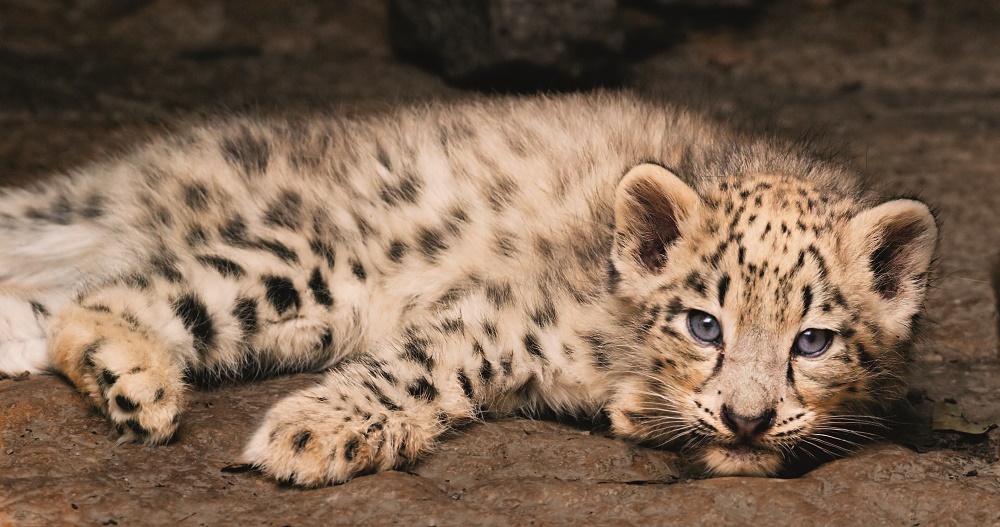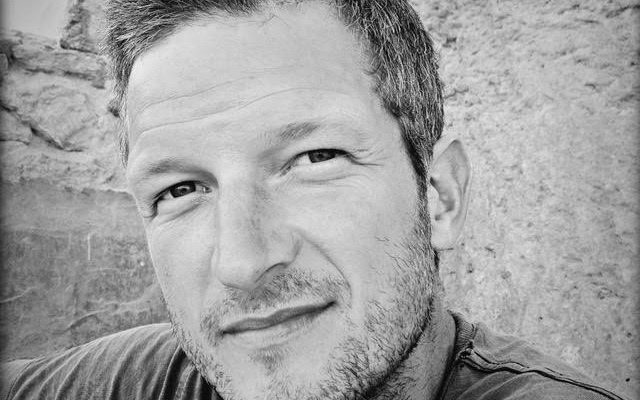Composer Barnaby Taylor wrote the original score for Disneynature’s Born in China, which was released just in time for Earth Day. The project was a perfect fit for Taylor’s twin passions for music and conservation.
Taylor didn’t originally set out be a professional composer. Although he grew up in a musical family, he studied zoology in school, then worked as a research assistant on nature films. But music kept calling to him, and eventually he took the risky move of shifting his professional path mid-career. It paid off; he won an Emmy Award for his work on the 2008 BBC mini-series Wild China, and has gone on to work on several other high-profile projects.
Conscious Connection caught up with Taylor at his home in southern England. We talked about his risky decision to pivot his career from film production to composing, why Disney is a particularly good partner for this type of venture, and his advice for anyone else looking to pursue their creative calling.
Conscious Connection: Tell me about your background. How did you get started as a musician?
Barnaby Taylor: I was raised in a very musical family. My father is a singer-songwriter. From an early age I was interested in music and surrounded by musicians, particularly traditional musicians. As a result, I almost by osmosis became very involved in writing music.
When I got to about the age of 9, I began asking for piano lessons. I was already playing by then, but I was pretty much making it up as I went along. I studied piano and really enjoyed it, but I knew early on that I wasn’t going to be a concert pianist. It wasn’t what appealed to me. I was left with all this creativity that didn’t have a home.
My other interest was the natural world. I was absolutely obsessed with nature and nature films. I would watch reruns of the Disney True-Life programs. I would watch films by Jacques Cousteau and David Attenborough. This imagery and idea of the natural world really excited me.
I ended up studying zoology instead of music at university. I really loved it and was really interested in animal behavior. I was going down this academic route, but I was also craving a more creative world. So I began working in the production of these films. I worked at the BBC Natural History Unit, and then I went on to work for an independent film company called Icon Films. I was going down this road of being a researcher, then a senior researcher, then an assistant producer. It was, in some ways, a very glamorous lifestyle.
But deep down I knew that I had to have a musical component in my life. I kept quieting this voice saying, “You should do music,” but there’s only so long you can do that before it just has to happen.
Conscious Connection: So what changed for you? What made that musical component happen?
Barnaby Taylor: The thing about being involved in these films is I came into contact with the composers who were scoring them. And I keep thinking, “What a great job that is. You get to work in all these different genres and styles. You get to work with these traditional sounds and musicians, and that’s what I love to do.”
Life moves on, doesn’t it? You buy houses, you start a family, and it gets tougher and tougher to change direction. My instincts were saying, “You’ve got to do it now.” In 1998, I finally thought, “It’s now or never. I’ve got to pursue the music before I go any further down the production side.” And I made that leap and haven’t really looked back since.

Conscious Connection: So how did you make that leap? How did you get started as a film composer?
Barnaby Taylor: A lot of people told me it couldn’t be done with no formal music training, but I was pretty confident in my ability to write a tune. I scored anything I could get my hands on – student films, theater production, low budget shorts, just gradually building up a showreel. Then I moved on to orchestral scores, some drama, and that got me to where I am today.
Conscious Connection: What’s your process for composing a movie score?
Barnaby Taylor: I get involved very early. I get sent a treatment or a script, and that sometimes is enough to trigger some ideas. For Born in China I immediately knew we were going to be in China, so that gave me something to research and think about – the instruments, the players, who I was going to use.
I keep the treatment on the piano, and sometimes as I wander past the words are enough for me to sit down and get some ideas going. I like to have that fluidity. When an idea comes, I’ll play it and record it as a voice memo on my phone. Or I’ll be out walking my dog and I’ll think of something and I’ll sing it into my phone.
When the film begins to be edited, the team will send me short sequences. That’s when I start to work with themes and think, What’s the essential character of this animal? What’s the emotion in this story, and how can I convey that? I’ll mock those up on the piano and live with them for a while. Then I’ll start to develop the instrumentation using samples and synthesizers and send them back to the team. That’s what gets the dialogue going.
It’s very easy to talk about music, but until you get this to and fro going, it’s hard to know what someone wants. I’ve realized that, for example, what one director thinks of as sad music is what another one thinks of as happy music. A lot of ideas end up being complete dead ends. But bit by bit, you get these ideas and you develop them.
Then there comes a point when you start replacing these sample instruments with the real things. With Born in China we had an 85-piece orchestra with percussionists and about a dozen Chinese musicians, which was fantastic. It added that feel and flavor of China. And we recorded it and mastered it and then delivered it.

Conscious Connection: It sounds like you’re living your dream. That must be very exciting.
Barnaby Taylor: Well, don’t get me wrong, these projects can be very tough. There can be a lot of big egos around, and managing those and managing your own is tough. The projects themselves can be very stressful at times, and it’s not the most stable of lives. I certainly would like to be doing more drama and more things with human beings in it, but I’m also very lucky to be where I am scoring these fantastic nature films.
It does feel like this is what I should be doing. I don’t know if I could do anything else. I’d certainly not be good at anything else. (laughs) For me, the half of it is writing music to a moving image. That’s the basic thing that I love. To a degree it doesn’t really matter what those moving images are as long as I feel engaged with them. All the other stuff – the contracts, the conflict, the stress – those are just details. When I sit down at the piano, and I have my laptop next to me and I’m watching a sequence over and over again and trying to get inside it, that is a buzz. I suppose that is living the dream.
Conscious Connection: This was your first time working with Disneynature. How was that experience?
Barnaby Taylor: Working for Disneynature is very special on lots of levels, but the really important thing to know about them is just how much money they put into the conservation projects that are behind these films. It’s really unheard of in TV programming and even nature programming. With every Disneynature film that goes out, the first weekend of the release, the proceeds go toward big conservation projects. They’re great to work with creatively, but ethically there’s a side to them that a lot people just aren’t aware of.
Conscious Connection: What advice do you have for people interested in scoring films?
Barnaby Taylor: Find what genre you love and put your heart and soul into it. Invest in your own sound. If a piece of music needs a solo violin or fantastic percussionist, find that percussionist and use them.
Directors are very visual people, so if you’re going to be pitching to directors, there’s no point in sending them a folder of audio files. It’s just not going to impress them because there’s so much music out there. Your job is to stand out from that very loud background noise. The way to do that is to attach your music to something visual.
I sometimes have students who send me music files and I say, “It’s great, but what’s it for? You haven’t shown me how you’re reacting a scene or emotion in a scene.” I tell them, “You’re at university. Go to the film department and find someone who’s making films and as if you can score it. Because then you have a showreel and something visual to show. Until that point, it’s just music. It’s not enough.’”
Conscious Connection: What advice do you have for someone who wants to take a risk and follow their passion?
Barnaby Taylor: Get good advice from people you trust who are experienced. I had some good mentors who were in the business who heard my music and said, “You can do this.” Jumping blind would have been very risky.
Preparation is important and timing is very important. Let’s say you made that decision to be a composer, and by great fortune someone offers you that gig. If you’re not ready you’re going to fail, and that’s going to really knock you back. Follow your passion, get good advice and be prepared.




